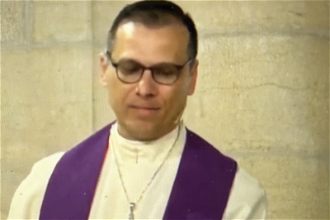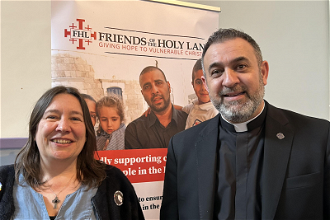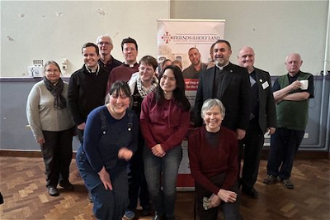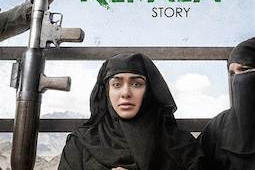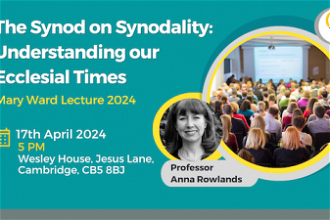Bethlehem Reflection: The bulldozer and the clarinet
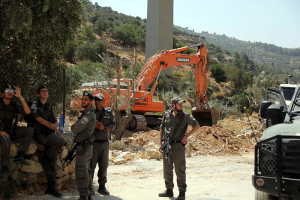
Soldiers supervise destruction of olive groves
Rev Saliba Rishmawi prays and speaks behind an improvised open air altar under the watchful eye of Israeli soldiers behind him accompanied by an Israeli military jeep. He seems relaxed, but his words are strong. "Here it happens that land, trees and people are destroyed."
It is Wednesday 2 September. In the presence of a German Pax Christi group from Augsburg we stand at the foot of the imposing high bridge in Beit Jala used by Israeli settlers traveling between Jerusalem and the Hebron and Gush Etzion settlements. A road that cannot be used by Palestinians from the West Bank. Here in the valley is the village of Bir 'Ona, a neighbourhood which has an incomprehensible legal or political status.
On the one hand, its land has been annexed by Israel to Jerusalem, and some of its families carry - at least until now - a Jerusalem ID. On the other hand, the village is part of the West Bank and the inhabitants have sometimes to apply for a permit to go to Jerusalem. As for its real status, Bir 'Ona has always been part of the town of Beit Jala.
For many years the inhabitants have asked for a clarification of their status - especially so as to know how they can legally build homes, which are now often demolished. However, the final result is that life becomes almost impossible. It's the silent ethnic cleansing at work, as it is called here.
More than 100 ancient olive trees opposite the houses are bulldozered, to make way for the Wall in this valley leading to Cremisan. In the Cremisan area, a total of 58 Palestinian (Christian) families lose access to their lands which in the future will be located behind the Wall. All for so-called security reasons.
The prayer service, conducted daily, takes place under the deafening noise of a bulldozer and the snoring sound of the jeep. At moments the reverend cannot hear his own words. From a high roof more soldiers observe the scene.
Rishmawi is supported by the local parish priest, Akhtam Hijazin. He says that the soldiers have said that they are here to protect us. "Of course they protect themselves," he adds. "Why is it necessary that Israel does not only occupy the tops of the hills [settlements on Beit Jala lands], the tunnels through the hills and the bridge between the hills, but also the valley?"
The result is, says Saliba Rishmawi, that people leave. Not only youth, but also families. Only last week seven families left Beit Jala to countries in Europe and the US. What to do? The attendants feel powerless. Fuad is present, he has a red eye due to the teargas shot at atendants at the service on Sunday. His daughter Rania, director of AEI, cannot come because she still has a headache from the Sunday teargas. Is it normal teargas, we ask ourselves.
Guided by a clarinet we sing "We Shall Overcome" in response to the noise around us. Afterwards I walk back with an acquaintance. He says that on Sunday he was approached by a female Israeli soldier, in Hebrew. He did not answer, as he does not speak the language. Then a male soldier approached him to ask why he did not "respectfully" treat the other soldier. "When this happens a next time, you will be arrested."
Toine Van Teeffelen is a member of the Arab Education Institute in Bethlehem. A partner group of Pax Christi International.



